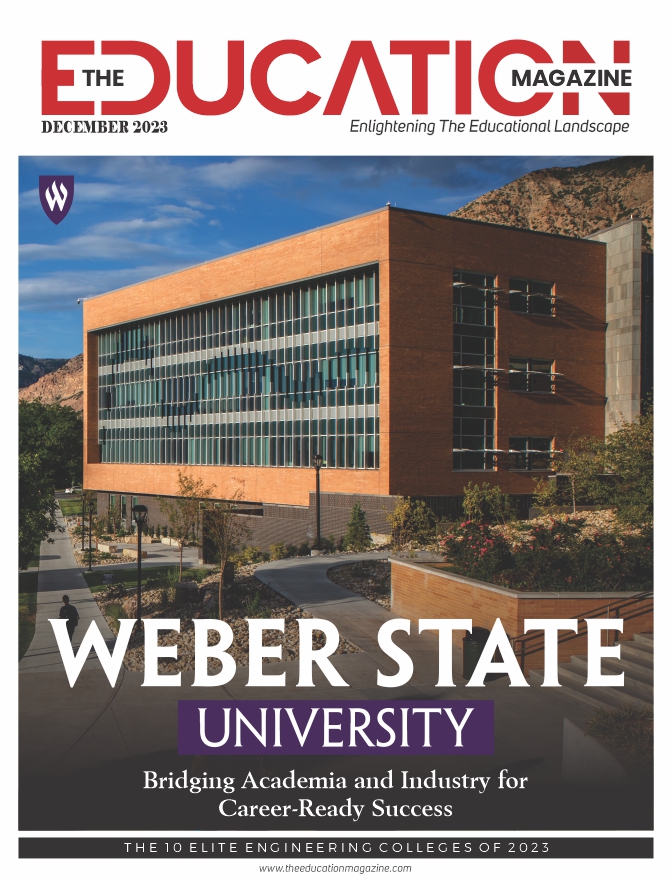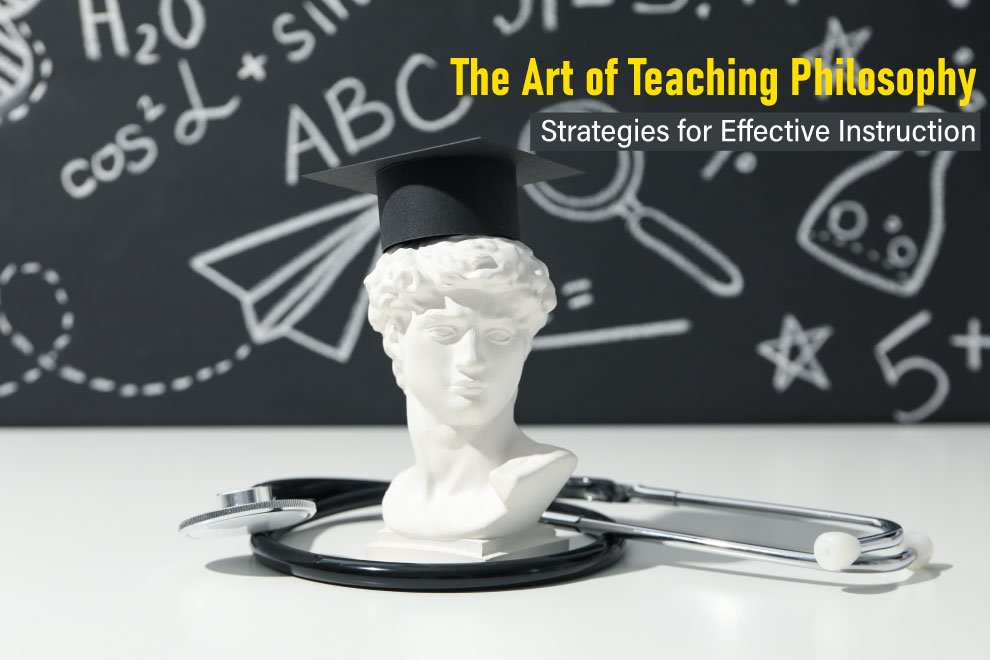Are you interested in entering the dynamic field of aerospace engineering? Are you eager to explore the different courses and career opportunities available within this domain? This is a field that continuously challenges the limits of human ingenuity, offering numerous exciting career paths. These range from designing advanced aircraft and spacecraft to spearheading innovations in propulsion systems and aerodynamics. The potential within this field is as vast as the universe itself. This blog is your comprehensive guide to a career in this field. Let’s begin!
What is Aerospace Engineering?
Before exploring career options in this challenging fiel, it is important to grasp the essence of this field.
Put simply, aerospace engineering encompasses the design, development, testing, and production of aircraft, and spacecraft, as well as related systems and equipment. This field comprises two major and interconnected branches: aeronautical engineering and astronautical engineering.
The origins of aerospace engineering can be traced back to the pioneering efforts of aviators in the late 19th and early 20th centuries. Originally labeled as “aeronautical engineering,” Informally, aerospace engineering is often colloquially referred to as “rocket science.”
What Do Aerospace Engineers Do?
There are many career options in aerospace engineering, and this often leads to confusion about the primary duties of these professionals. In this blog, we will clarify their key responsibilities
These engineers are responsible for designing, developing, testing, and maintaining aircraft, spacecraft, satellites, and related systems. They apply principles of physics, mathematics, and engineering to advance aerospace technology.
Some of their primary tasks encompass:
- Designing and testing the aerodynamics of novel aircraft wings.
- Innovating propulsion systems for spacecraft.
- Constructing satellites for communication, navigation, or Earth observation.
- Developing flight control systems to ensure the stability and trajectory of aircraft and spacecraft.
- Pioneering new materials and manufacturing techniques for aerospace components.
In essence, they play a pivotal role in shaping the future of aviation and space exploration.
Skills Needed To Become An Aerospace Engineer
Decision Making: Aerospace engineers play a pivotal role in decision-making. They continuously decide on aspects such as aircraft design, material selection, and construction methods. Informed choices contribute to safer and more efficient aircraft designs.
Operations Analysis: Part of an aerospace engineer’s job involves analyzing aircraft operations encompassing design, manufacturing, and testing. The ability to assess operation performance is crucial, as it allows engineers to pinpoint areas for enhancement.
Problem-Solving: Problem-solving skills are essential for aerospace engineers during aircraft design and construction. Proficient problem solvers can generate effective solutions and implement them promptly.
Critical Thinking: They must engage in critical thinking. Given that some aircraft may operate beyond Earth’s atmosphere, meticulous planning and design are imperative.
Analytical Skills: Analytical thinking is another vital skill for these engineers, involving the examination of data to arrive at practical solutions. Analytical thinking is particularly valuable for the mathematical and scientific aspects of this field.
Science and Math Proficiency: Proficiency in mathematics and science is paramount for aerospace engineers. A strong foundation in these subjects is essential for success in this career.
Software Skills: Aerospace professionals must excel in computer skills. They often utilize specialized software for aircraft design, manage data through spreadsheets, and employ computers for communication purposes.
Basic Educational Qualifications You Will Need
To ensure that students have a wide range of career options in aerospace engineering, they should choose a science track during their junior college years. This track should include courses in Physics, Chemistry, and Biology.
Keeping up with scientific developments and staying informed about current events in the field is essential. Additionally, internships, entry-level positions, and apprenticeships can be instrumental in offering aspiring aerospace engineers valuable hands-on experience. This practical exposure helps them enhance their expertise in aerospace engineering.
Aerospace Engineer Certifications
To broaden your career options in aerospace engineering, several professional certificates can enhance your qualifications. These certificates are available through various sources, including professional organizations like the American Institute of Aeronautics and Astronautics (AIAA) and the American Society for Quality (ASQ), as well as government agencies like the Federal Aviation Administration (FAA). Below is a list of some of the most popular professional certificates for aerospace engineers:
- Certified Aerospace Engineer (CAE)
- Certified Professional Aerospace Auditor (CPAA)
- Certified Professional in Aerospace Quality (CQA)
- Certified Aerospace Quality Manager (CAQM)
- Certified Flight Test Engineer (CFTE)
These certifications can significantly boost your expertise and career prospects in the field of aerospace engineering.
1. Aeronautical Engineer
Courses: BSc/MSc in Aeronautics and Astronautics, BSc/MSc in Aerospace Engineering, BEng (Hons)/MEng (Hons) in Aeronautical Engineering,
Average Academic Fees: $64,698
Average Annual Salary: $101835 per year
Aeronautical engineers create, design, test, and manufacture aircraft and spacecraft. They utilize their expertise in mathematics, engineering principles, and aerospace technology to ensure the safe and efficient design and production of these vehicles.
Universities in the USA that offer a degree in aerospace engineering include some of the most prestigious institutions in the world, such as MIT, Georgia Tech, Purdue, Michigan, Caltech, Stanford, UT Austin, Virginia Tech, and Princeton
Career options for aeronautical engineers are diverse and include:
- Aerodynamics Engineer
- Design Engineer
- Aeronautical Engineer
- Engineering Consultant
- Buyers and Procurement Officer
- CNC Programmer
- CAD Technician
- Associate/ Lead Manufacturing Engineer
- Associate Mechanical Design and Analysis Engineer
- Associate Systems Engineer
- Safety Representative Engineer
- Professor
- Flight Controls Engineer
- Stress Engineer (Aerostructure, Airbus)
Aeronautical engineering is a challenging but rewarding field that offers the opportunity to make a real difference in the world.
2 Astronautical Engineer
Courses: BSc/MSc in Aerospace Engineering with Astronautics Concentration, BSc/MSc in Aeronautics and Astronautics, BSc/MSc in Aerospace Engineering.
Average Academic Fees: $100,000
Average Annual Salary: $121,414
Astronautical engineering offers numerous challenges and rewards, along with a plethora of job opportunities. These engineers have the responsibility of designing, developing, and testing spacecraft, rockets, and various space systems. Moreover, they play a vital role in missions connected to space exploration.
Here are some leading universities in the USA that provide astronautical engineering degrees: California Institute of Technology, Massachusetts Institute of Technology, Purdue University, Stanford University, Georgia Institute of Technology, and the University of Michigan, among others.
After completing your degree in astronautical engineering, you can pursue a variety of job opportunities, including:
- Spacecraft Engineer
- Rocket Engineer
- Space Systems Engineer
- Spacecraft Design Engineer
- Spacecraft Propulsion Engineer
- Spacecraft Guidance, Navigation, and Control Engineer
- Spacecraft Software Engineer
- Spacecraft Manufacturing Engineer
- Spacecraft Research Engineer
- Spacecraft test Engineer
- Mission planning Engineer
- Flight operations Engineer
If you are interested in pursuing a career in astronautical engineering, I encourage you to research different programs and universities to find the right fit for you.
3. Propulsion Engineer
Courses: BE/BTech/ ME/MTech in Aerospace Engineering/ Aeronautical Engineering.
Average Academic Fees: $92,739
Average Annual Salary: $102,136.
Propulsion engineers design, develop, and test propulsion systems for various vehicles, including aircraft and spacecraft. Their work is integral to the transportation industry, enhancing safety, efficiency, and environmental friendliness.
Here are some of the top universities in the USA that offer a degree in propulsion engineering: California Institute of Technology, Purdue University, Massachusetts Institute of Technology, Georgia Institute of Technology, Stanford University, University of Michigan, Florida Institute of Technology, and University of Florida.
After completing your degree in propulsion engineering, you can pursue a variety of job opportunities, including:
- Propulsion Engineer
- Rocket Engineer
- Jet engine Engineer
- Turbine Engineer
- Combustion Engineer
- Fluid mechanics Engineer
- Thermodynamics Engineer
- Aerodynamics Engineer
- Propulsion Systems Engineer
- Propulsion Design Engineer
- Propulsion Test Engineer
- Propulsion Research Engineer
4. Aerospace Systems Engineer
Courses: Bachelor/ Master of Science, Bachelor/Master of Engineering, Bachelor/Master in Aerospace Engineering, Bachelor/Master in Mechanical Engineering, Bachelor/Master System Engineering, etc.
Average Academic Fees: $ 64,698
Average Annual Salary: $126,700
Aerospace systems engineers design, develop, and integrate intricate systems for aircraft, spacecraft, and other aerospace vehicles, ensuring seamless collaboration among various components to attain desired performance.
Aerospace systems engineers design, develop, and integrate complex systems for aircraft, spacecraft, and other aerospace vehicles. They work to ensure that all the different components of these systems work together seamlessly to achieve the desired performance.
The United States boasts several top universities that offer degrees in aerospace systems engineering. These institutions include the Massachusetts Institute of Technology (MIT), Stanford University, the University of California, Berkeley, the Georgia Institute of Technology, Purdue University, the University of Michigan, the University of Texas at Austin, Virginia Polytechnic Institute and State University (Virginia Tech), and the University of Southern California (USC).
After completing your degree in aerospace systems engineering, you can pursue a variety of job opportunities, including:
- Aerospace Systems Engineer
- Systems Engineer
- Systems Architect
- Systems Analyst
- Systems Integrator
- Test and Evaluation Engineer
- Program Manager
- Project Manager
- Technical Manager
- Research Engineer
- Development Engineer
- Design Engineer
- Manufacturing Engineer
5. Aerospace Software Engineer
Courses: Bachelor/Master in Aerospace Engineering, Bachelor/Master Degree in Computer Science, Bachelor/Master Degree in Software Engineering, and Bachelor/Master Degree in Electrical or Electronic Engineering.
Average Academic Fees: $55,000
Average Annual Salary: $97,653
Aerospace software engineers play a crucial role in the development of new aerospace technologies and the improvement of existing systems. They design, develop, and test software for aircraft, spacecraft, and other aerospace systems.
If you’re interested in pursuing a degree in aerospace software engineering in the USA, consider some of the top universities offering this program. These universities include the Massachusetts Institute of Technology (MIT), Stanford University, the University of California, Berkeley, the Georgia Institute of Technology, Purdue University, the University of Michigan, and the University of Texas at Austin.
After completing your degree in aerospace software engineering, you can pursue a variety of job opportunities, including:
- Aerospace Software Engineer
- Software Engineer
- Systems Engineer
- Systems Architect
- Software Developer
- Firmware Engineer
- Test Engineer
- Validation Engineer
- Integration Engineer
- Research Engineer
- Development Engineer
- Design Engineer
In summary, aerospace engineering offers several popular career paths, with numerous U.S. universities providing specialized programs in these fields. Pursuing these top five careers can open up numerous job opportunities. These distinct paths showcase the dynamic and ever-evolving nature of the aerospace industry, offering limitless opportunities for those who thrive on pushing boundaries. We hope you’ve gained valuable insights from this blog. For more content like this, please continue reading The USA Leaders.
ALSO READ: 25 Alluring Facts about NASA that will feed your Curiosity










